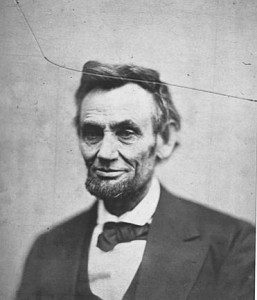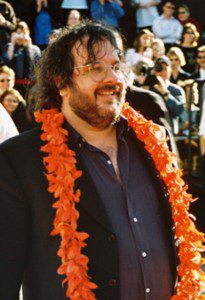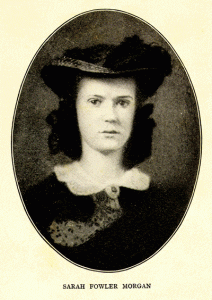I went to see Steven Spielberg’s movie Lincoln today and found it mostly wonderful. Near the beginning, we see a dramatization of one of Lincoln’s recurring dreams of being on a boat that is heading into the mist, a boat on which he is alone without means of navigation. He associated these dreams with coming events on the battlefield, in the fog of war. In the dream depicted in the movie, the boat is going faster than he finds comfortable, and when he shares the dream with his wife Mary, she tells him – after reflection – that it is not another dream about the war, but about his determination to push Congress to pass the Emancipation Amendment, his final and most lasting achievement.
This scene in the film is as true to history as the gritty and sometimes wildly entertaining depiction of the backroom dealings and outright bribery required to muster a two-thirds majority for the 13th amendment to the Constitution in the House of Representatives. Abraham Lincoln believed that all dreams have meaning, and found clues in his dreams. He maintained that the best dream interpreters are “children of nature”, ordinary people who are in touch with their instincts and feelings. After the premature death of his young son Willie,, Lincoln repeatedly dreamed of his son.
I wished that the film had left out Lincoln’s assassination, and simply ended when we see the President’s back as he leaves the White House for Ford’s Theater on the fatal night of April 14, 1855. Or that the scripting team had decided to end with Lincoln’s most famous dream, as they began with a lesser-known one.
Lincoln had a precognitive dream of his assassination, and I am inspired to recount that story here. The full story of that dream – of how it haunted Lincoln, and how he tried to get a second opinion on it, and finally failed, tragically, to heed the warning – is intriguing and instructive.
The original source is a memoir by Lincoln’s friend and aide Colonel Ward Hill Lamon, who heard him tell the dream. In Recollections of Abraham Lincoln Lamon recalls that Lincoln was “haunted” by a sinister dream that seemed “amazingly real” but said nothing until confronted by his wife Mary to explain his melancholy and “want of spirit.”
Lincoln began by talking about the Bible. “It is strange how much there is in the Bible about dreams….If we believe the Bible, we must accept the fact that in the old days God and His angels came to men in their sleep and made themselves known by dreams.”
Asked for his own views on dreams, Lincoln revealed that he was “haunted” by a dream form a few nights before – and that he had sought a second opinion on the dream, repeatedly, by opening his Bible at random and seeking a message in the text his eye fell upon. The first time he did this, he found himeself in Genesis 28, reading the story of Jacob’s Ladder, one of the great dream visions in the Bible. He tried again and again. “I turned to other passages and seemed to encounter a dream or vision wherever I looked.”
Clearly this gave him the sense that his own dream was a true dream, perhaps a prophetic one. This increased the grip of the dream on him, to the point where. Lincoln said, “the thing has got possession of me, and like Banquo’s ghost, it will not down.” At Mary’s prodding, he recounted the dream. There was first a deathly stillness around him. Then he heard the weeping of invisible mourners. He roamed the White House, trying to understand what was going on. The rooms were all brightly lit but he found no one until he entered the East Room and met with “a sickening surprise”. Soldiers stood guard over a corpse wrapped in funeral vestments on a catafalque. When Lincoln demanded, “Who is dead in the White House?” one of the soldiers replied, “The President – he was killed by an assassin!” A great howl of grief rose from mourners in the room.
Waking, Lincoln was unable to sleep for the rest of the night. Having told the dream, Lincoln announced that – despite his Bible discoveries and the depth of his feelings – it was “only a dream” and should be forgotten. But it stayed in his mind, and he tried to dismiss it by developing the idea that it could not be about his own assassination because – as he told Lamon – it was “some other fellow” that was killed.
Lincoln understood dreaming. He regarded true dreams and presentiments as natural, not supernatural, and extraordinary visions as the workings of “The Almighty Intelligence that governs the universe.” Yet he was unable to take action based on his dream to avoid the tragedy that it portended. To active dreamers, one of the “what ifs” of history is: what if President Lincoln, a gifted dreamer, had been able to go back inside his dream through the dream reentry technique to clarify exactly what was going on? Might he then have known how to escape his date with death?
–
Dream reentry, a core technique of Active Dreaming, is explained in several of my books, including The Three “Only” Things and Active Dreaming, with examples of how it has been used to clarify possible future events and change the future for the better.


